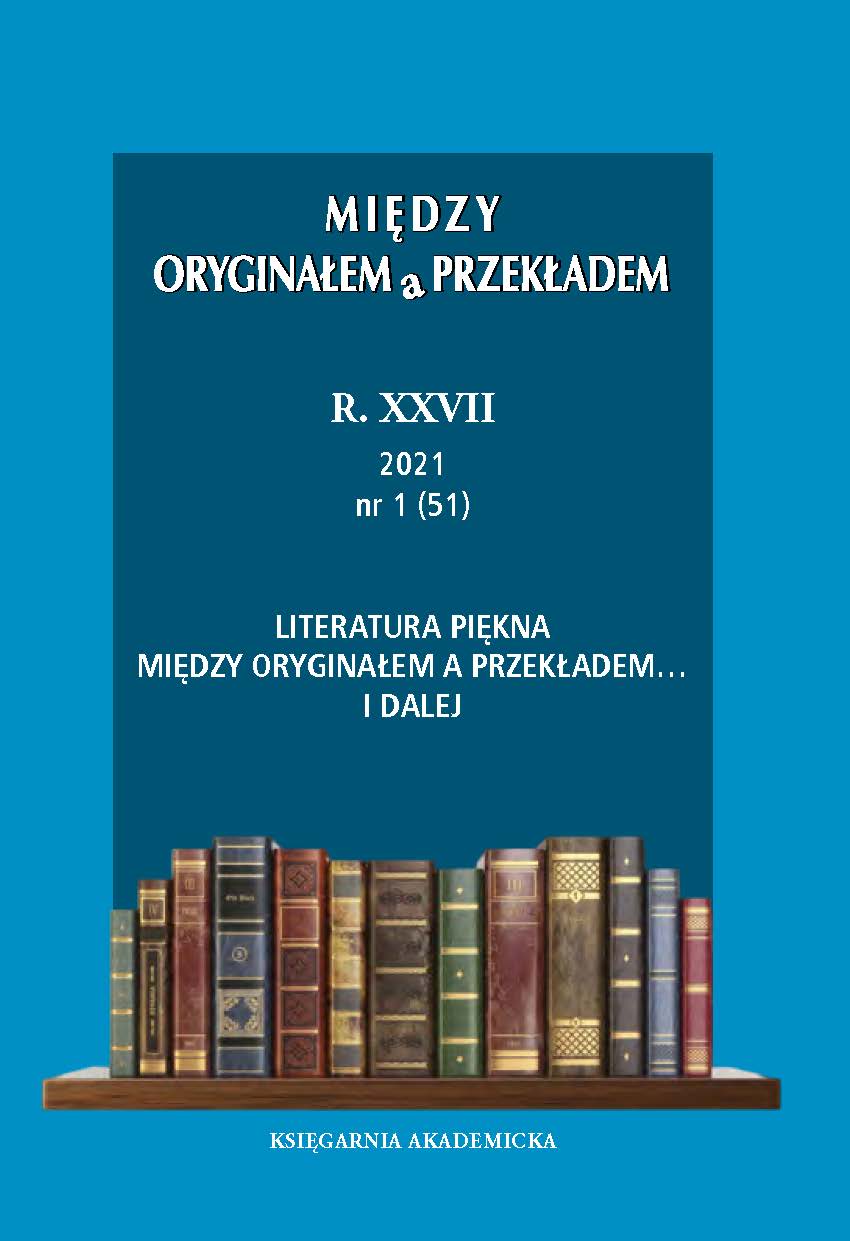Sekret Chloris, czyli o greckich antroponimach w "Pieśniach" Horacego
The Secret of Chloris. On the Greek Anthroponyms in Horace’s Odes
Author(s): Hanna Zalewska-JuraSubject(s): Language and Literature Studies, Translation Studies
Published by: KSIĘGARNIA AKADEMICKA Sp. z o.o.
Keywords: Horace’s Odes;Greek anthroponomy;translation
Summary/Abstract: The trend of poesis docta in Horace’s Odes manifests itself, inter alia, in the sphere of anthroponomy, as many of the names introduced by the poet into his works are of Greek origin. These are pseudonyms, the meaning of which refers to topography (e.g. Lydia, Lycidas, Lyca), to Greek literary tradition (e.g. Neobule, Telephus) and pseudonyms in which there are allusions essential for reading the sense of the work or its part (e.g. Glycera, Lalage, Chloe, Foloe, Chloris, Myrtale, Pyrrus). In poetic translations into Polish, these meaningful nomina propria are not translated, which means that the recipient of the translation is not conscious of the allusion hidden behind the name, and thus is deprived of the possibility of decoding a vastrange of subtexts. The article discusses possible translation solutions that can meet the expectations of various target groups of Polish readers, especially those who do not have linguistic preparation in the field of ancient languages.
Journal: Między Oryginałem a Przekładem
- Issue Year: 2021
- Issue No: 51
- Page Range: 125-138
- Page Count: 14
- Language: Polish

